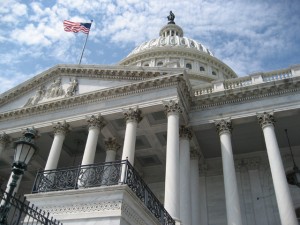
The public should have access to the details of the program so it can assess whether taxpayer money is being spent well, says Public Citizen.
Public Citizen filed a Freedom of Information Act (FOIA) request yesterday for information that it says is needed to assess whether the Car Allowance Rebate System (CARS) or “cash-for-clunkers” program is actually working.
The Washington-based pressure group made the request claiming the Obama administration “has not been forthcoming with key information” just as Republicans in the Senate appeared to be dropping opposition to a proposed $2 billion extension of the popular program.
At the center of the controversy is a lack of agreement about the goals clunkers purports to accomplish: a general business stimulus and taxpayer bailout of car dealers and automakers, or a clean air initiative that will reduce emissions and decrease fuel consumption. All of those arguments were put forth since the proposed legislation appeared last January.
“The public should have access to the details of the program so it can assess whether taxpayer money is being spent well and whether the program is truly helping curb auto emissions,” said Lena Pons, policy analyst for Public Citizen. “If the program is as successful as the administration claims, then releasing the information should only strengthen its case.”
After the Department of Transportation announced that its initial $1 billion in funding had been spent after just one week, the House of Representatives approved another $2 billion in funding. Critics claim that the $1 billion spent was derived from early reports from auto dealers and has not yet been verified by NHTSA. The Senate should get more information before voting to approve this additional $2 billion in funding, Pons said.
The “cash for clunkers” program drew immediate criticism from Public Citizen when it was rolled out on July 24th for its vague fuel economy benefits and high sales estimates, which did not account for purchasers who would have bought new vehicles anyway. The difference in fuel economy between vehicles traded in and the newly purchased vehicles is among the information sought by the FOIA request.
Public Citizen also wants to know the types of vehicles (passenger cars or trucks) being purchased under the program, the makes and models most frequently traded in, and the makes and models most frequently purchased.
The organization also seeks aggregate data on responses to consumer surveys necessary to determine the program’s value as an economic stimulus.

Do you think actual data will sway a political argument?
I view data like Grandma’s chicken soup and its effects on a cold — it can’t hurt, and it might help.
Here’s the “program” in our area:
The dealers are now selling vehicles at or near suggested retail prices, any negotiations net very minimal discounts.
The “citizens” are trading in their 1986 cars and trucks with 300,000+ miles on them and get $4500 from the “program.”
The dealers are happy as hell, they don’t have to deal with trade-ins and they sell their vehicles at sticker price.
The citizens are happy as hell, they are getting $4500 for $50 vehicles.
The only losers are the working Americans that will have to pay for the program sooner or later, once the dust settles.
Yes, lets give ’em another 2 billion. Maybe we can expand it to include lease turn-ins and add another billion…
What bothers me the most is that all of these so called stimulous programs are smoke and mirrors in nature.
I think we will be looking at another hit once the money runs out and the new fees (taxes) increase.
I hope I’m wrong but I believe there is a long road ahead before true recovery begins.
Cash for Clunkers may be a good idea…or it may not. It seems to be generating some traffic at car dealerships and it may help to sell some new cars to some people, at a considerable cost to all tax payers. Will it help make cleaner air or improve the fuel economy of the fleet? It will be at least 6 months before they can collect and review the data….and by then it will be too late.
The rules for this program were not published until more than three weeks after the start date. It looked as if it were running out of funds within days of its official start date. The list of elegible vehicles and their fuel economy was wrong as posted on the government web site.
The good news is this is a program that you do not have to participate in, and it only influences you if you are looking to trade in an old car against the purchase of a new one.